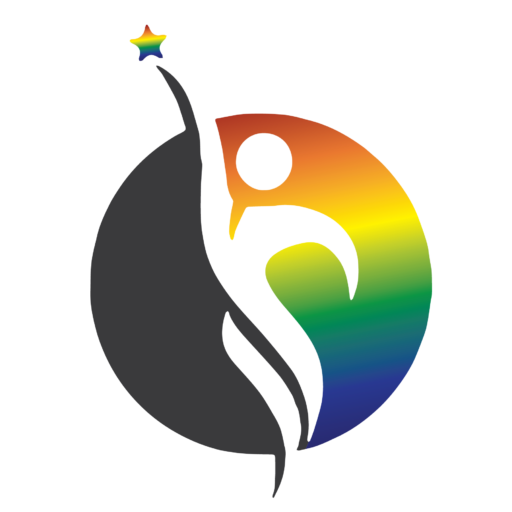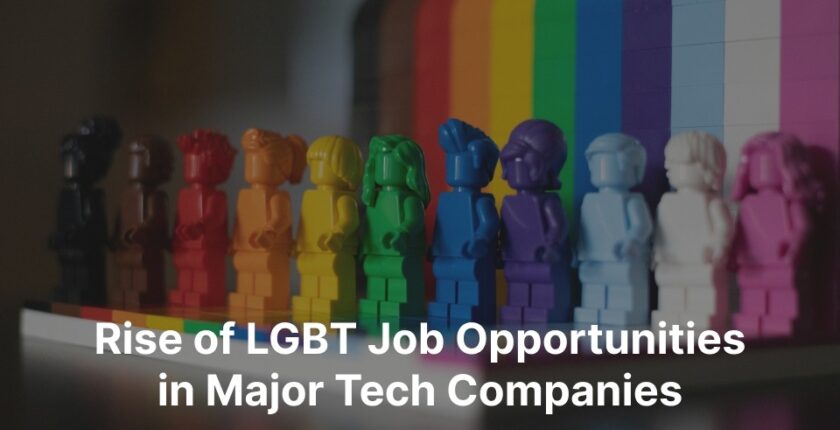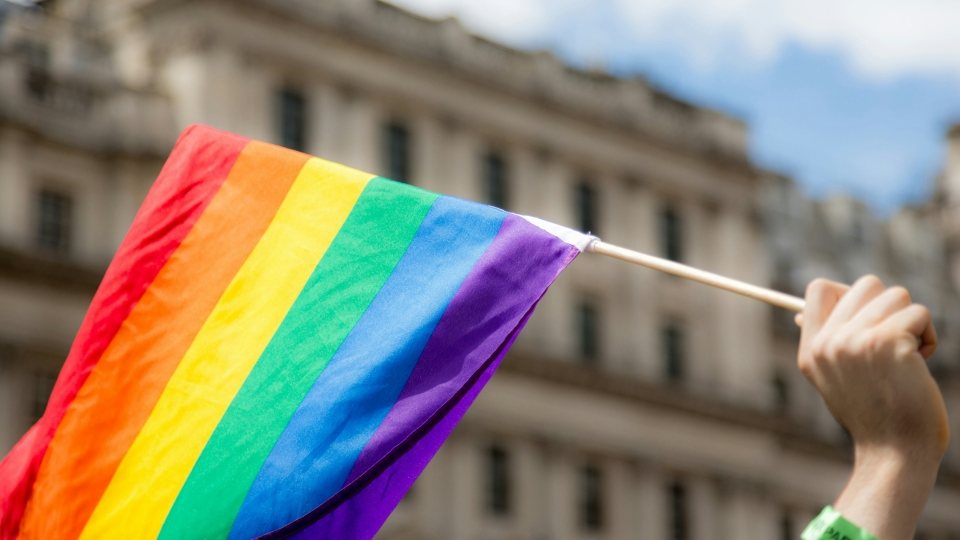Rise of LGBT Job Opportunities in Major Tech Companies
The world of technology has exploded over the last few decades, transforming countless aspects of modern life—everything from the way we communicate to how we shop and entertain ourselves. But amidst coding innovations, software releases, and shifting market trends, there’s another story unfolding: the rise of LGBT job opportunities in major tech companies.
This expansion comes as no surprise, given the tech sector’s reputation for being forward-thinking and deeply invested in future-focused innovations. If you’re a member of the LGBT community—or simply an ally eager to understand what’s happening—this piece explores the intersection of technology, inclusivity, and career development.
We’ll look back at historical hurdles that shaped the journey to this point, highlight policies at the forefront of inclusion, and discuss how dedicated platforms like joboard.lgbt are opening new doors for tech-savvy LGBT professionals worldwide.
The Tech Sector’s Global Influence
Tech companies are among the most influential organizations on the planet, both economically and culturally. From Silicon Valley giants in the United States to innovative startups in Berlin, Tel Aviv, and beyond, the tech sector sets trends that ripple through the broader business world.
Why does this matter for LGBT professionals? Because these organizations are often the first to implement progressive policies, experiment with remote work setups, and challenge entrenched norms around office culture. As “innovation” is essentially coded into the tech industry’s DNA, many of these companies understand that diverse voices spur new ideas. Consequently, they’re becoming magnets for LGBT talent—people who want to be in environments that respect their identities and value their contributions.
Significance of Inclusive Corporate Policies
Anti-Discrimination Clauses
One of the simplest but most powerful ways companies demonstrate genuine commitment to LGBT inclusion is by having comprehensive anti-discrimination policies. These policies go beyond vague language, explicitly mentioning sexual orientation and gender identity. By clearly stating zero-tolerance for harassment, these guidelines create a crucial baseline of safety for LGBT employees.
When put into practice, inclusive policies encourage candidates from all backgrounds to apply and set the stage for them to thrive without fear of prejudice. Major tech companies often make these policies public, reinforcing their stance to employees, potential hires, and stakeholders.
Healthcare and Benefit Coverage
Cutting-edge organizations understand that employee well-being is a multifaceted affair, encompassing mental health, physical health, and family considerations. Inclusive benefits might include healthcare coverage for same-sex spouses, paid parental leave for all genders, and transition-related medical care for transgender employees.
Tech giants that offer these benefits not only reduce the financial burden on LGBT staff but also send a clear message: We see you, we support you, and we’re ready to walk the talk.
Tech Giants Leading the Way
Official Diversity and Inclusion Statements
Microsoft, Google, Apple, Salesforce—these are just a few of the juggernauts that have wholeheartedly embraced diversity in their core messaging. It’s not unusual to find entire web pages dedicated to “Diversity & Inclusion” on these companies’ websites, outlining efforts like scholarship programs for underrepresented groups and targeted recruitment drives at LGBT conferences.
Such public commitments ripple across the industry. When major players refuse to be silent about their values, smaller startups take notice, understanding that the “best and brightest” talent often prefers working for companies that champion inclusion.
Pride Initiatives and Celebrations
Walk through the halls of major tech campuses in June—Pride Month—and you might see everything from rainbow-colored campus flags to internal events with keynote speakers. These aren’t just empty gestures. Celebrations help normalize LGBT identities in spaces that were once dominated by straight, cisgender norms. They open the door for real conversations about experiences, challenges, and triumphs.
Many tech companies also sponsor large-scale Pride festivals or volunteer at LGBT community centers, using their influence (and sizable budgets) to foster meaningful partnerships.
Growth of LGBT Employee Resource Groups
Collective Empowerment
Employee Resource Groups (ERGs) for LGBT professionals are cropping up in companies big and small. These groups act as safe havens, providing emotional support, networking opportunities, and social activities for employees who share similar life experiences. But their role goes beyond fostering a sense of belonging. ERGs often drive corporate policy changes, organizing training sessions on inclusive language, and advocating for expanded healthcare coverage.
Amplifying Employee Voices
One of the most significant benefits of an LGBT ERG is that it gives employees a direct pipeline to leadership. Concerns about microaggressions, calls for gender-neutral bathrooms, or suggestions for Pride sponsorships can move from informal conversations to formal proposals. In many tech firms, senior leaders actively seek ERG input when drafting inclusion-focused strategies.
Role of joboard.lgbt in Tech Recruitment
For LGBT tech professionals eyeing a switch—or even their first job—joboard.lgbt can be a game-changer. Instead of sifting through endless listings on generic platforms, candidates can find roles at companies that are already vetted for inclusive policies and cultures. This cuts the guesswork and anxiety out of wondering if a prospective employer truly embraces diversity.
Moreover, candidates can see listings that highlight specific benefits and programs aimed at LGBT folks, from dedicated mentorship opportunities to ERGs, thereby narrowing their search to workplaces aligned with their values.
On the employer side, joboard.lgbt helps establish an inclusive pipeline for tech talent. Organizations looking for fresh perspectives—from coders to product managers—can efficiently connect with skilled LGBT applicants who are ready to thrive in a forward-thinking environment. By tapping into specialized job boards, tech companies significantly widen their recruiting net while reinforcing a culture that welcomes candidates from all walks of life.
Remote Work and Global Opportunities
As remote work becomes more mainstream, many LGBT professionals in less inclusive regions can now secure roles at globally recognized tech companies without having to relocate.
This new dynamic broadens their career possibilities, enabling them to remain close to family, stay in communities they love, or live in places where the cost of living is more affordable—all while working for top-tier tech organizations.
Remote work also means leadership roles are more accessible. Instead of having to relocate to pricier tech hubs—like San Francisco, London, or Singapore—LGBT individuals can climb the corporate ladder from wherever they call home.
This shift democratizes leadership opportunities and creates a more globally representative layer of decision-makers. Ultimately, it pushes companies to consider a broader range of experiences and cultural insights when forming their strategies.
Mentorship and Leadership in Tech
A vital component of career growth is mentorship—especially for professionals who might face additional challenges in the workplace. Major tech companies now sponsor mentorship initiatives pairing junior employees with seasoned mentors. For LGBT mentees, having a mentor who understands (or at least empathizes with) the nuances of being out at work can be a game-changer.
These programs often delve into more than career pathing; they address the personal side of professional life, such as navigating coming out at work, managing microaggressions, or dealing with mental health pressures related to discrimination.
Mentorship isn’t just feel-good fluff. It has tangible impacts on career trajectories. When senior managers invest in the growth of LGBT talent, those employees are more likely to move into leadership roles themselves. As they ascend, they become role models, showing what’s possible for the next generation of LGBT professionals.
Addressing Intersectionality in Tech
Overlapping Identities
The tech world’s push toward inclusion also shines a light on intersectionality—the idea that individuals have layers of identity, such as race, gender, sexual orientation, religion, and socioeconomic status. For example, a queer person of color may face different challenges than a white gay man in the same department.
Being truly inclusive means recognizing these layers and tailoring approaches to support each person holistically. This might involve targeted outreach to underrepresented communities or ensuring that hiring panels themselves reflect various identities.
Inclusive Data Collection
Tech companies often rely on analytics to drive decisions. The same principle applies to diversity. Collecting demographic data—while respecting privacy—can highlight gaps and measure progress. If, for instance, there’s a disproportionate lack of promotions for LGBT women of color, organizations can pivot their strategy, investigating the root causes and implementing targeted mentorship or skill-building programs.
Emergence of Startups Driving Inclusion
Founders with LGBT Backgrounds
Silicon Valley lore often focuses on the brash, risk-taking founder. Increasingly, these bold entrepreneurs also happen to be openly LGBT, bringing a fresh wave of perspective to the startup ecosystem. Their ventures often incorporate inclusive thinking from day one—structuring benefits to cover surrogacy, for instance, or offering parental leave to all employees. By doing so, these startups set a new standard, demonstrating that even small organizations can be powerful drivers of change.
Designing Products for All
In a world dominated by apps and digital services, inclusive design is more than a moral stance—it’s a strategic advantage. LGBT founders and product teams tend to be sensitive to usability and accessibility for diverse audiences. Whether it’s ensuring sign-up forms accommodate non-binary gender options or verifying that AI-driven algorithms don’t perpetuate bias, these startups underscore the reality that inclusive thinking fuels better products for everyone.
Microaggressions and Implicit Bias
Challenges in a Rapidly Evolving Sector
Despite progress, tech workplaces aren’t immune to microaggressions—those subtle, often unintentional comments or actions that demean someone’s identity. For LGBT employees, these can manifest as invasive questions about transitioning, jokes about pronouns, or assumptions about someone’s partner. Tech companies move fast, sometimes so fast that they overlook slow-building cultural issues.
The good news is that many organizations are tackling this challenge head-on by creating internal channels where employees can report incidents anonymously, or by initiating training that spotlights unconscious biases. Recognizing a problem is half the battle; the other half is delivering consistent, actionable solutions.
Allies can play a pivotal role in combating microaggressions. Simple acts—like politely correcting a colleague who misgenders someone or urging a friend to avoid using derogatory language—foster a culture of respect. In tech, where collaborative projects often span multiple time zones and cultures, allies serve as critical bridges that help maintain a supportive environment for everyone.
Showcase of Notable LGBT Tech Figures
Inspiring Stories
From Tim Cook—CEO of Apple—to Arlan Hamilton—founder of Backstage Capital—prominent LGBT figures have shown that authenticity and business acumen go hand in hand. Their stories resonate because they involve not only scaling professional mountains but also managing the unique hurdles that arise from being LGBT in high-stakes settings.
Leadership Impact
Beyond inspiring the next generation, these leaders shape corporate values at the highest levels. By signaling their openness about orientation or gender identity, they normalize visibility. It becomes clearer to employees and peers alike that being LGBT is not an obstacle to success but rather another layer of talent and perspective that enriches an organization.
Business Case for LGBT Inclusion
Innovation and Market Growth
At its core, the tech industry thrives on innovation. Fresh perspectives are often the spark that ignites groundbreaking ideas. Inclusive teams, by nature, bring varied viewpoints, which can lead to solutions that resonate more broadly. LGBT professionals, like other underrepresented groups, have life experiences that might differ from the mainstream, allowing them to see market gaps or user needs that others might miss.
Attracting and Retaining Talent
Talent acquisition is competitive in tech, with companies vying for the best developers, product managers, and data scientists. Firms that prioritize LGBT inclusion can better stand out to top-tier candidates who want more than just a paycheck. They’re seeking psychological safety, supportive policies, and a sense of alignment with the company’s values. Once hired, these employees tend to stay longer and contribute more wholeheartedly, further boosting morale and reducing turnover costs.
Future of LGBT Opportunities in Tech
Ongoing Evolution
The tech sector will continue to change as new technologies emerge and fresh waves of talent join the workforce. With the growing emphasis on flexible, borderless work and the rise of next-generation leaders who grew up in a more accepting environment, we can expect to see even more breakthroughs in LGBT visibility and opportunity. We’re entering a phase where being out at work might be considered standard—rather than a courageous anomaly.
Steps Toward Greater Equity
Despite the progress, there’s still room for growth. Underrepresented groups within the LGBT umbrella—such as transgender people, non-binary folks, and queer people of color—often remain marginalized. Addressing these inequalities requires sustained, intentional efforts: more mentorships, intersectional policies, continuous training, and a willingness among leadership to be held accountable.
Moving forward, each voice matters. HR teams can refine policies, employees can speak up about discrimination, and tech leaders can keep championing LGBT causes on the grand stage. The path to equity may twist and turn, but the momentum is already strong, and the future looks increasingly inclusive.
Conclusion
From early struggles to today’s inclusive hiring practices, the tech sector has come a long way in embracing LGBT job opportunities. Driven by a culture that values fresh ideas, an appetite for risk-taking, and a deep desire for social progress, major tech companies are setting new standards for workplace equality. Along the way, specialized platforms like joboard.lgbt are making it easier than ever for professionals to find roles where they can flourish without leaving any aspect of their identity at the door.
Whether you’re an aspiring programmer, a seasoned project manager, or an ally standing by your colleagues, there’s never been a better time to explore the tech world’s evolving landscape. The future holds even more promise, as companies continue to refine their policies, adopt intersectional approaches, and champion the voices of those who once felt they had no place at the table.
LGBT professionals aren’t just finding their seats in the tech industry—they’re reshaping it from the inside out. And that, in turn, is spurring innovations that benefit us all.
FAQs
Tech firms are known for innovation and progressive thinking, making them more open to diverse perspectives. Many also have strong anti-discrimination policies and robust ERGs that create a supportive culture for LGBT employees.
Inclusivity varies from company to company. While many tech giants have robust policies, it’s always wise to research their track records, employee testimonials, and public commitments—along with resources like joboard.lgbt—to gauge genuine inclusivity.
Many do, especially if their founders are from underrepresented groups or if diversity is woven into their mission from the start. Nonetheless, you should still investigate each startup’s policies and culture to ensure they walk the talk.
Prepare questions about company culture, ERGs, and diversity initiatives. Look for concrete examples rather than vague statements. If the interviewer can’t provide any specifics, that might be a red flag.
Allies can be powerful advocates by challenging bias, promoting open communication, and supporting policy changes that benefit the LGBT community. Their voices can amplify and legitimize the concerns of LGBT employees, accelerating cultural shifts.




